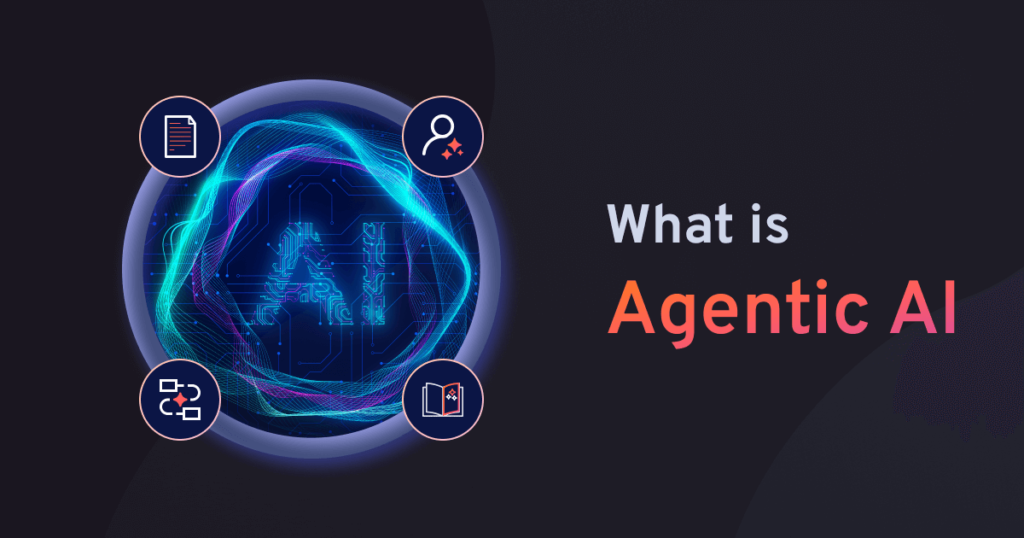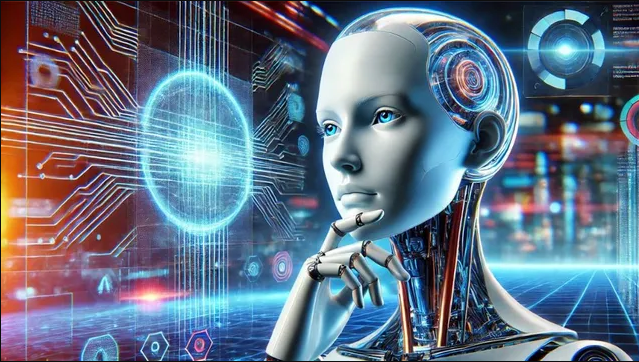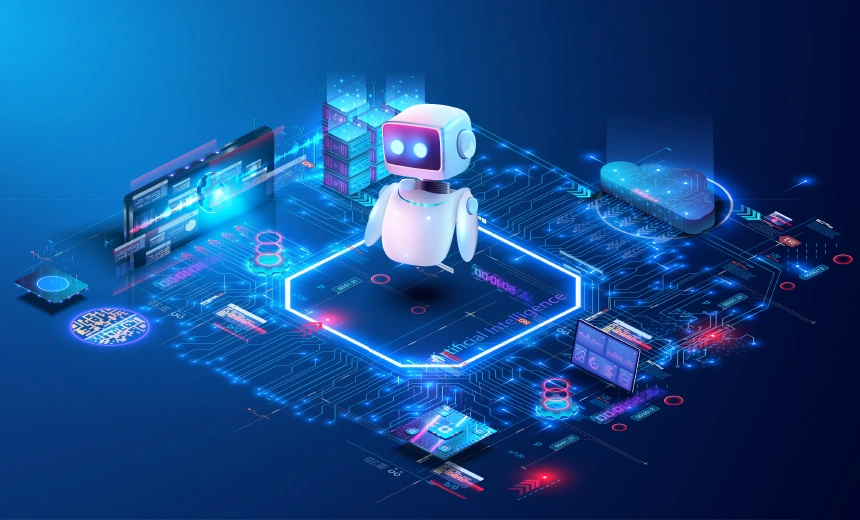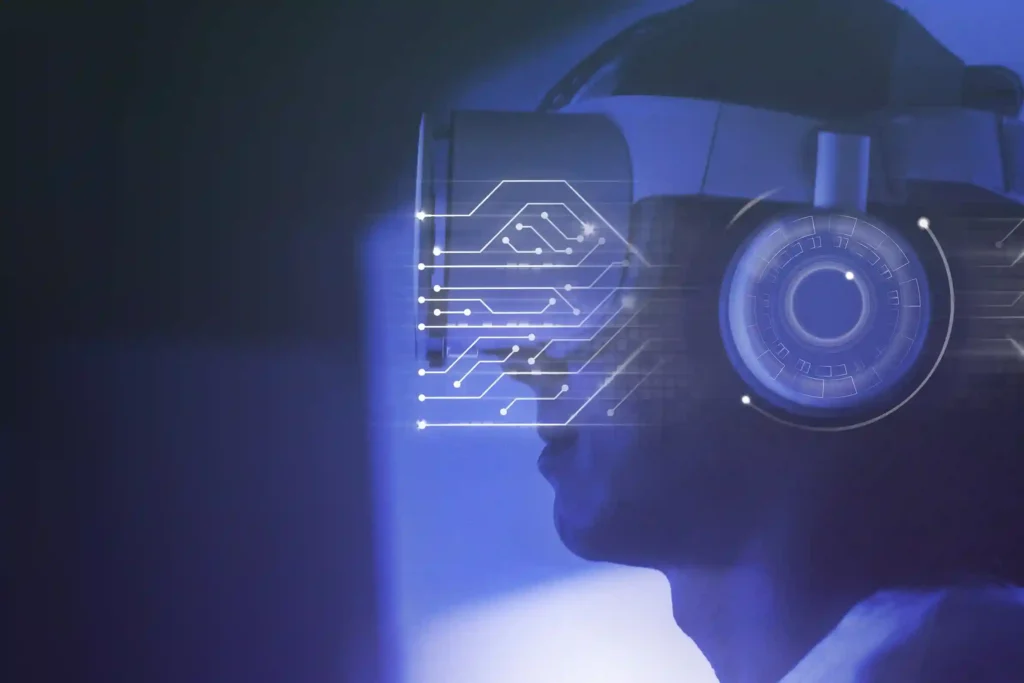Artificial intelligence is changing dramatically, and the capacity of systems to complete tasks on their own and free from human intervention is growingly crucial. Agentic artificial intelligence (AI) systems of a new generation are driving this change. Unlike more conventional artificial intelligence models, Agentic AI systems are made to be self-directed and capable of making intelligent decisions aligned with particular goals, hence enabling hitherto unheard-of degrees of automation.
This post will investigate the promise of Agentic AI, delving into the complexities of its architecture, its wide ranging applications, and the potential to revolutionize the future of technology and automation. It will also center on Agentic AI ‘s special qualities and how it differs from past generations of systems. By investigating the realm of Agentic AI, you will acquire significant insights into how AI is likely to progress, and what this means for companies, organizations and especially for individuals
Table of Contents
Knowing Agentic AI ‘s Core Principles

Defining Agentic AI’s fundamental ideas and how they vary from conventional artificial intelligence systems helps one to really grasp it:
- Autonomous Operation: Agentic artificial intelligence (AI) is mostly distinguished by its capacity to function autonomously, which implies that it can make decisions on its own, react to various inputs, and change in real time free from human involvement. This is made feasible by algorithms able to manage complicated reasoning and also to adapt when fresh data becomes accessible.
- Goal-Oriented Design: Agentic artificial intelligence is usually meant to reach particular aims or objectives. This helps them to run in line with particular demands.
- Perception of the Environment: Agentic artificial intelligence systems are commonly given the capacity to interact with their environment and perceive it for many different kinds of applications. They may then act on it. Applications including robots, driverless cars and also a range of other kinds of automation chores depend on this.
- Decision-Making Under Uncertainty: Agentic artificial intelligence systems also have to be able to make decisions even in cases of ambiguity or lacking knowledge. This usually calls for depending on several kinds of heuristics and estimating probability.
- Continuous Learning and Adaptation: The finest of these systems are able to continually learn from their experiences and to adapt to new information, and they will also change their strategy over time, in order to get the most efficient and best potential results.
- Collaboration: Agentic artificial intelligence systems are typically made to cooperate with other systems and with other AI tools even though they are often meant to run on their own.
These basic ideas serve to describe Agentic AI’s special powers and how it differs from more established systems.
Agentic AI’s Transformative Power Across Domains
Agentic artificial intelligence has special powers ready to transform several sectors and uses:
- Manufacturing Revolutionized Through Autonomous Factories: Agentic artificial intelligence is being applied to run industries with automated systems, robotic workforce, completely autonomous and optimal systems using autonomous facilities. These artificial intelligence solutions are also boosting efficiency and helping to save expenses via their application.
- Improved Healthcare Diagnostics: Agentic AI is also having a significant influence on healthcare since systems that can examine medical pictures and make diagnosis decisions—often with great accuracy—and with minimal human involvement.
- Customized Financial Services for Clients: Better financial advise, automated investment decisions, and also fraud detection are being derived from this kind of technology.
- Highly Optimized Supply Chains: Agentic AI is being applied to maximize every facet of a supply chain as well as to aid to lower costs and cut waste. help to reduce costs, and eliminate waste.
- More intelligent, more effective Smart Cities: These ideas are also being applied in Smart Cities to enhance traffic flow, maximize energy usage, and so increase the sustainability of several municipal processes and infrastructure.
Although these are only a sample, Agentic AI is projected to permeate almost every industry of the economy and many facets of contemporary life.
Agentic artificial intelligence: challenges and ethical issues
Agentic artificial intelligence brings several difficulties even if its possible advantages are very great:
- The Need for Ethical Guidance: Autonomous decision-making raises significant ethical questions in fields like algorithmic prejudice, lack of responsibility, and lack of ethical guidance; hence, these systems may be employed in ways that have unjust or unexpected effects.
- Questions of Job Displacement: The automation of jobs will probably lead to job losses in some sectors, which will call for a comprehensive assessment of the social and economic consequences as well as the execution of social programs and even fresh education efforts.
- Security: Ensuring that every Agentic AI system is safe, strong, and cannot be utilized for evil intent is absolutely vital. You also have to be able to believe the numbers and their correctness.
- Transparency and Trust: By guaranteeing that users understand how decisions are made and also that the systems can be trusted, a concentration on “Explainable AI” will assist to boost confidence in Agentic AI systems. Furthermore you have to guarantee that all data is kept private and cannot be used to control or take advantage of system users.
One should have a cautious and balanced attitude to grasp how new technologies affect society and especially employees.
Agentic AI: Growing and Influencing Expert Forecasts

Agreements among experts are that Agentic artificial intelligence will be a major technology of importance in next years:
- Agentic artificial intelligence will manage 15% of all everyday job choices by the year 2028, according to Gartner, therefore underscoring the projected fast rate of adoption.
- As new uses for Agentic AI arise as companies and other organizations try to increase their efficiency, save costs, and create fresh ideas, investment in research of Agentic AI is probably going to grow.
- Like any technologies, the success of Agentic AI will probably rely on effectively handling the difficulties and carefully weighing all the ethical consequences that have to be taken into account.
These studies highlight the need of tracking Agentic AI as the technology develops and as we discover fresh uses for these instruments.
The Future: Developments in Emerging Directions and Future Patterns
Agentic artificial intelligence keeps developing, and there are certain obvious routes that will probably be rather important.
- Development of More Complex AI Systems: IMore sophisticated, autonomous AI systems that can manage ever difficult jobs are probably going to be developed from more complicated technology.
- Greater Integration into Other Systems: Better integration with other IT and AI services as well as the systems’ increasing integration into current systems will be evident.
- Developing Explainable AI systems and AI that are both simple to comprehend and trustworthy will probably continue to be of great importance.
- Establishing Ethical Standards for AI Development: The ethical and responsible creation of AI systems will be given more of importance. Over the next years, this will become ever more crucial, particularly considering Agentic AI.
- Enhanced cooperation between people and artificial intelligence will help these systems raise worker output.
These actions will make artificial intelligence not only more strong but also more dependable and user-friendly; so, the expansion of Agentic AI and associated technologies is projected to keep going in the next years.
Conclusion
Agentic artificial intelligence marks a major turning point in artificial intelligence as it allows one to build really autonomous systems capable of revolutionizing companies and also to automate chores in before unattainable manner. Understanding the principles, possible advantages, and ethical issues of this method helps one to effectively use Agentic AI. We can get ready for a day where technology is handled sensibly and where it helps all of mankind by moving deliberately and cautiously and by ensuring that all of the hazards are addressed.
For everyone interested in the direction of technology, “agentic AI” is a fundamental technology to follow.
FAQs
Q1: ” Agentic ai” is supposed to signify what?
A : Agentic artificial intelligence, or “agentic ai,” is the ability of AI systems to behave autonomously, make judgments, and run operations free from human direction. It also suggests a more degree of autonomy and a shift toward wise decision making.
Q2: Agentic artificial intelligence finds possible uses in what areas?
A : Among other possible uses are autonomous manufacturing, healthcare diagnostics, tailored financial services, supply chains optimized, and smart city management systems.
Q3: When handling artificial intelligence systems, what are some possible ethical questions and problems one should be aware of?
A: These cover the issues of prejudice, justice, responsibility, job displacement, security, general openness, and the necessity of user confidence.
Q4: How differs Agentic artificial intelligence from conventional artificial intelligence?
A: Agent artificial intelligence is the development of totally autonomous agents capable of making decisions and situational adaptation. In order to get a desired result, traditional artificial intelligence sometimes depends on human validation or input.
Q5: Define autonomous decision making, then what does this imply for companies?
A: Autonomous decision making is the capacity of artificial intelligence systems to act and make decisions depending on their own data analysis with little or no human guidance.



